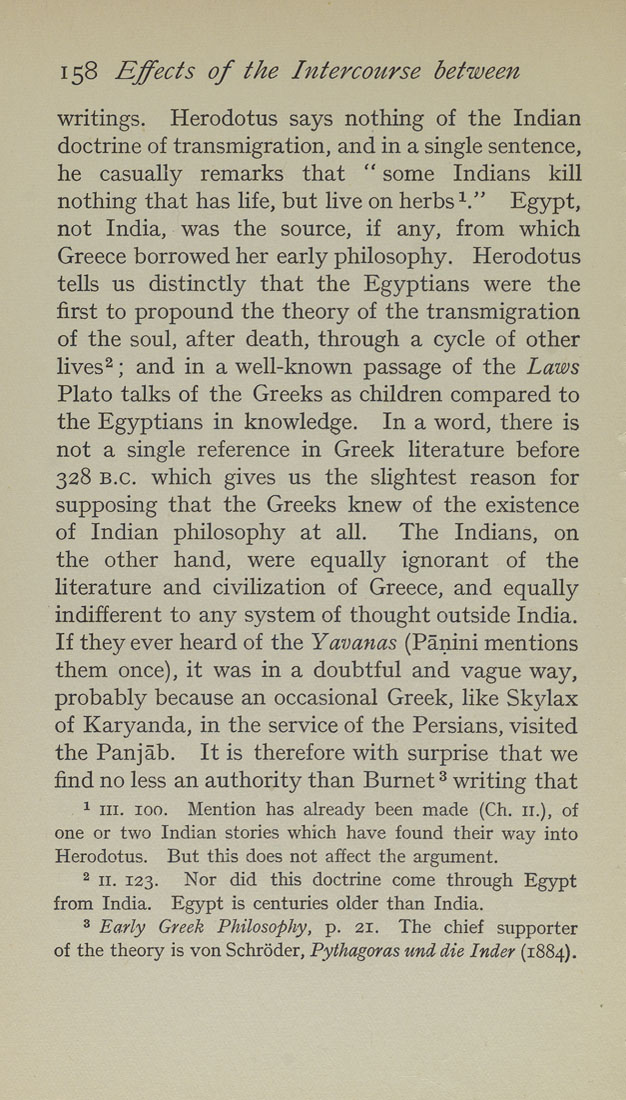158 Effects of the Intercourse between
writings. Herodotus says nothing of the Indian
doctrine of transmigration, and in a single sentence,
he casually remarks that " some Indians kill
nothing that has life, but live on herbs ^." Egypt,
not India, was the source, if any, from which
Greece borrowed her early philosophy. Herodotus
tells us distinctly that the Egyptians were the
first to propound the theory of the transmigration
of the soul, after death, through a cycle of other
lives^; and in a well-known passage of the Laws
Plato talks of the Greeks as children compared to
the Egyptians in knowledge. In a word, there is
not a single reference in Greek literature before
328 B.C. which gives us the slightest reason for
supposing that the Greeks knew of the existence
of Indian philosophy at all. The Indians, on
the other hand, were equally ignorant of the
literature and civilization of Greece, and equally
indifferent to any system of thought outside India.
If they ever heard of the Yavanas (Panini mentions
them once), it was in a doubtful and vague way,
probably because an occasional Greek, like Sk3dax
of Karyanda, in the service of the Persians, visited
the Panjab. It is therefore with surprise that we
find no less an authority than Burnet ^ writing that
1 III. 100. Mention has already been made (Ch. ii.), of
one or two Indian stories which have found their way into
Herodotus. But this does not affect the argument.
2 II. 123. Nor did this doctrine come through Egypt
from India. Egypt is centuries older than India.
3 Early Greek Philosophy, p. 21. The chief supporter
of the theory is von Schroder, Pythagoras und die Inder (1884).
|








